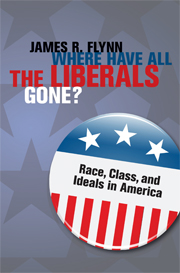Book contents
- Frontmatter
- Contents
- List of figures and maps
- List of tables
- List of boxes
- Acknowledgments
- Prologue
- Part I St. Thomas Jefferson
- Part II Blacks and the pursuit of happiness
- Part III Yours for a better world
- 5 Saving equality from the dustbin of history
- 6 Jefferson and Social Democracy
- 7 The America who would be king
- Part IV A history of moral confusion
- Epilogue
- Appendix: tables with comments
- References
- Index of names
- Index of subjects
6 - Jefferson and Social Democracy
from Part III - Yours for a better world
Published online by Cambridge University Press: 22 September 2009
- Frontmatter
- Contents
- List of figures and maps
- List of tables
- List of boxes
- Acknowledgments
- Prologue
- Part I St. Thomas Jefferson
- Part II Blacks and the pursuit of happiness
- Part III Yours for a better world
- 5 Saving equality from the dustbin of history
- 6 Jefferson and Social Democracy
- 7 The America who would be king
- Part IV A history of moral confusion
- Epilogue
- Appendix: tables with comments
- References
- Index of names
- Index of subjects
Summary
The mind of Eugene Debs fashioned a supreme maxim: happiness is never a solitary search; no man rises far above the ranks.
(Ray Ginger, 1948 [1962])Refuting the meritocracy thesis gives us permission to abolish privilege and reduce environmental inequality without trepidation. Greater equality is an indispensable goal of American Socialists like Debs and myself. I have claimed that we too walk in the footsteps of Jefferson. I want to show that this is so and how Social Democracy can help to revive idealism in American politics.
From Aristotle to Social Democracy
A tradition that originated in Aristotle and passed through enlightenment thinkers like Jefferson culminates in the values of Social Democracy. The contribution of Social Democracy is to render these values viable in industrial society by way of an awareness of class and using the modern democratic state to tame the market. There is, by the way, no agenda to abolish the market. That is no more sensible than believing that it has no deleterious effects or that nothing can be done to mitigate them.
We begin with Aristotle's wonderful description of what civil society is all about. It is more than a market because you can do business with foreigners; it is more than a military alliance because you can negotiate mutual defense treaties with foreigners; it is more than marriage ties because you can marry a foreigner; it is more than physical proximity because two groups can occupy the same city and be divided by hate; it is more than abstaining from injury to others because one can be kind to foreigners.
- Type
- Chapter
- Information
- Where Have All the Liberals Gone?Race, Class, and Ideals in America, pp. 148 - 173Publisher: Cambridge University PressPrint publication year: 2008



